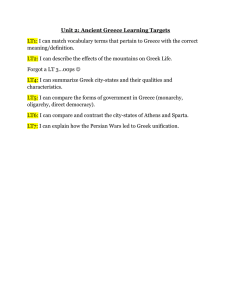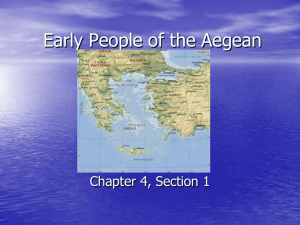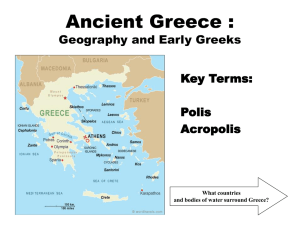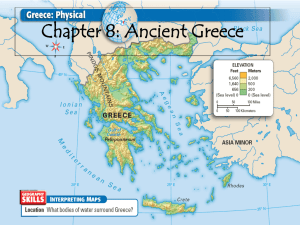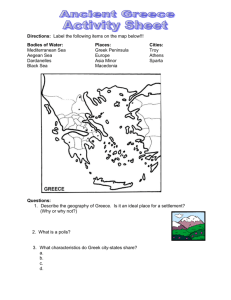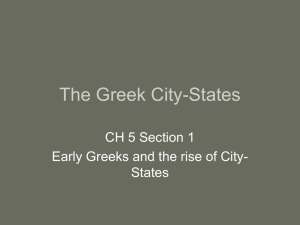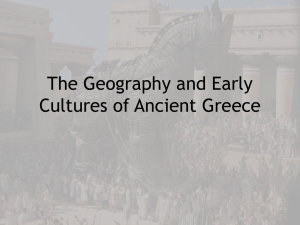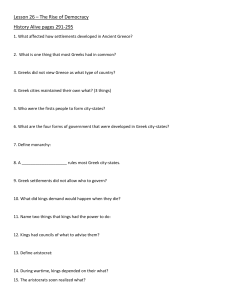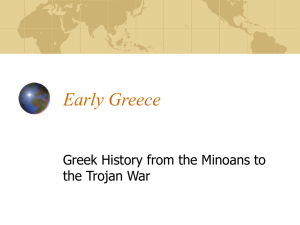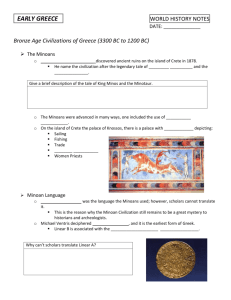The Rise of Greek Civilization
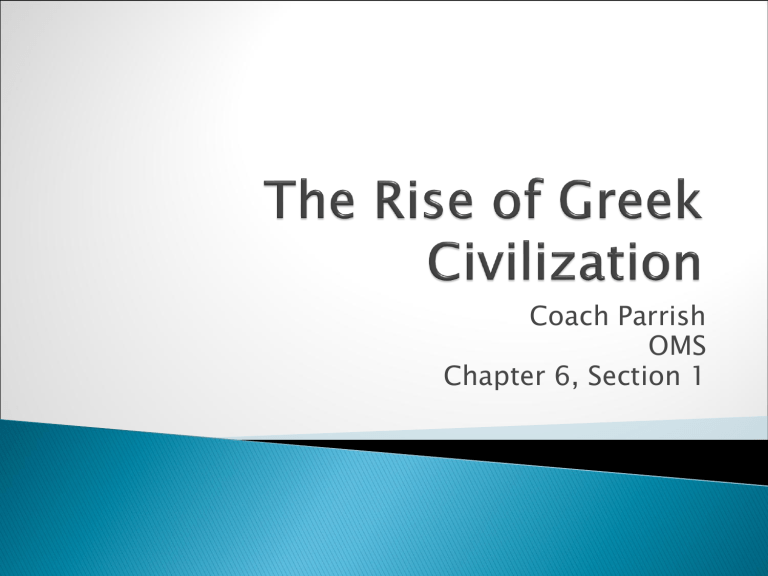
Coach Parrish
OMS
Chapter 6, Section 1
Greece appears as though the sea has smashed it to pieces. Some pieces drifted away forming rocky islands. Others barely cling to the mainland.
Because of these shapes, Greece is a country made up of peninsulas – area of land surrounded by water on three sides.
1.
2.
Only about 1/5 th of Greece is suitable for farming because most of the country is covered with mountains. The islands are mountain peaks.
Two Effects of Greek Geography
The Greeks became excellent traders and sailors.
The Greeks thought of themselves as separate countries because it was hard to get together.
The Minoans lived on the island of Crete from about 3000 to 1100 BC.
Because of their location, they were excellent traders who controlled the Aegean Sea.
After the Mycenaeans defeated the Minoans, the culture of the islands blended with mainland Greek culture.
At their height in 1400 BC, the Mycenaeans controlled trade, spoke an early form of
Greek, and used writing.
Greek myth tells the story of the Trojan War between Greece and the city of Troy in present day Turkey.
The Greeks conquered the Trojans by using a fake wooden horse filled with Greek soldiers.
The horse was rolled to the Trojan city gates.
Thinking it was a gift, the Trojans rolled it inside. After nightfall, the Greeks destroyed
Troy and burned the city to the ground.
Epics – long story-telling poems.
Two epics exist today telling of the Trojan
War, the
Odyssey
and the
Illiad
, written by
Homer. Some historians believe that Homer exaggerated the story to make it sound better.
Soon after the Trojan War, civilization in
Greece collapsed. People no longer traded for food and other goods beyond Greece and poverty was everywhere. The Dark Ages took place from 1100 – 750 BC.
Acropolis – a high, rocky hill where early people built cities.
Historians believe that sometime around 750
BC, villages joined with cities and began to develop their own traditions, laws, and governments.
City-state – a city, that is also a separate independent state.
The earliest rulers of city-states were probably chieftains or kings who were military leaders.
By the end of the Dark Ages, most city-states were ruled by aristocrats – members of rich and powerful families.
Because they were wealthy, aristocrats could afford land, chariots, and the best weapons that helped make themselves stronger.
As the Greeks sailed to ports to trade various goods, the city-states became wealthy. A middle class of merchants and sailors developed.
The middle class wanted representation in government and began to equip themselves with armor, swords, and spears.
Gradually power shifted from the aristocrats to tyrants – rulers who seize power by force.
Eventually the people in city-states overthrew the tyrants. Some city-states developed a style of government called democracy – citizens govern themselves.
The most successful democratic city-state was Athens.
Athenian democracy became the leading government of the ancient world.
